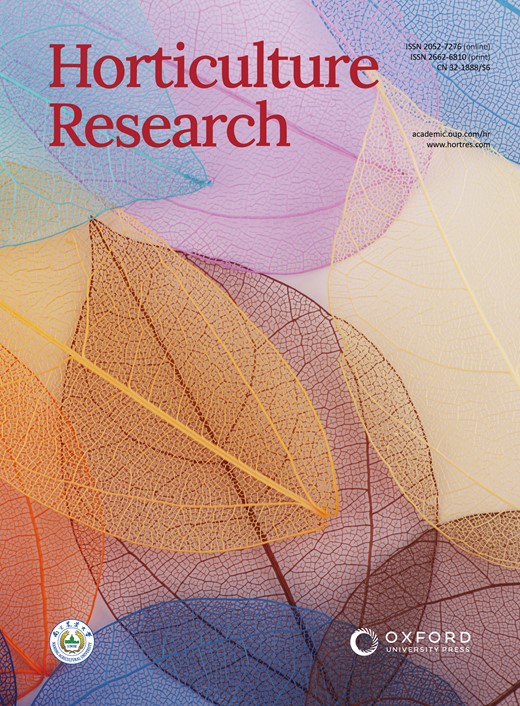Shaping the future of bananas: advancing genetic trait regulation and breeding in the post-genomics era
IF 8.7
1区 农林科学
Q1 Agricultural and Biological Sciences
引用次数: 0
Abstract
(Musa spp.) are among the top-produced food crops, serving as a primary source of food for millions of people. Cultivated bananas originated primarily from the wild diploid species Musa acuminata (A genome) and Musa balbisiana (B genome) through intra- and inter-specific hybridization and selections via somatic variation. Following the publication of complete A- and B-genome sequences, prospects for complementary studies on S- and T-genome traits, key gene identification for yield, ripening, quality, and stress resistance, and advances in molecular breeding have significantly expanded. In this review, latest research progress on banana A, B, S, and T genomes is briefly summarized, highlighting key advances in banana cytoplasmic inheritance, flower and fruit development, sterility, and parthenocarpy, postharvest ripening and quality regulation, and biotic and abiotic stress resistance associated with desirable economic traits. We provide updates on transgenic, gene editing, and molecular breeding. We also explore future directions for banana breeding and genetic improvement.求助全文
约1分钟内获得全文
求助全文
来源期刊

Horticulture Research
Biochemistry, Genetics and Molecular Biology-Biochemistry
CiteScore
11.20
自引率
6.90%
发文量
367
审稿时长
20 weeks
期刊介绍:
Horticulture Research, an open access journal affiliated with Nanjing Agricultural University, has achieved the prestigious ranking of number one in the Horticulture category of the Journal Citation Reports ™ from Clarivate, 2022. As a leading publication in the field, the journal is dedicated to disseminating original research articles, comprehensive reviews, insightful perspectives, thought-provoking comments, and valuable correspondence articles and letters to the editor. Its scope encompasses all vital aspects of horticultural plants and disciplines, such as biotechnology, breeding, cellular and molecular biology, evolution, genetics, inter-species interactions, physiology, and the origination and domestication of crops.
 求助内容:
求助内容: 应助结果提醒方式:
应助结果提醒方式:


